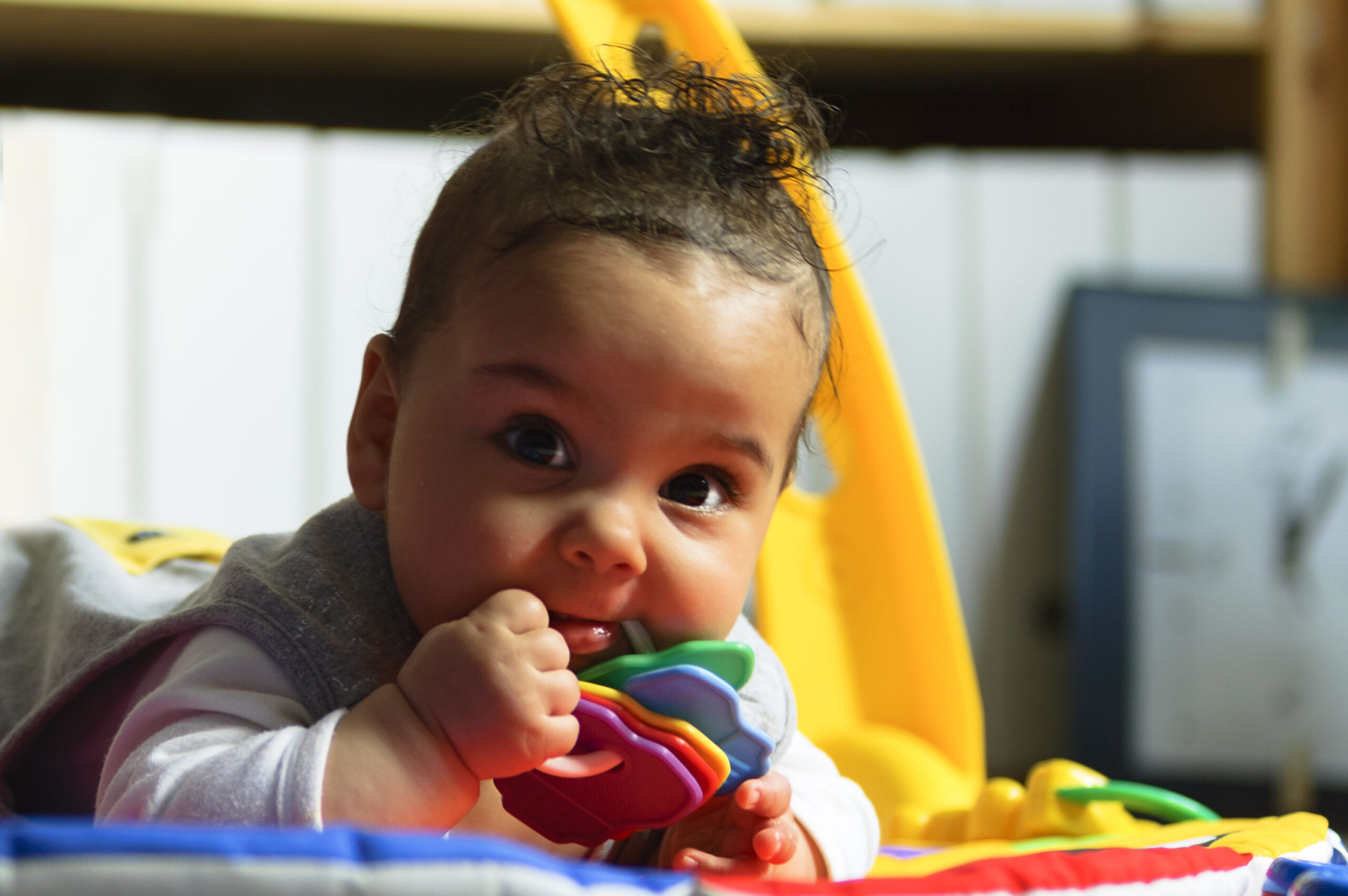 Baby’s first chompers can be an exciting milestone. On average, the first tooth appears between 4 and 7 months of age, but unfortunately, sometimes it replaces that adorable toothless grin with a crying, irritable baby.
Baby’s first chompers can be an exciting milestone. On average, the first tooth appears between 4 and 7 months of age, but unfortunately, sometimes it replaces that adorable toothless grin with a crying, irritable baby.
“Some babies seem to experience a great deal of pain, while others hardly seem bothered by it,” said Emma Raizman, MD, a pediatrician at Akron Children’s Pediatrics, Medina. “That discomfort can start well before the first tooth actually pops through. Teeth have many layers of gums to come through before they present in the mouth.”
Telltale signs your baby is teething include lots and lots of drooling, gnawing on toys or her fists, and periods of extreme fussiness. Sometimes baby can even experience disruptions in her usual sleeping and eating patterns.
Tender and swollen gums also can cause an elevated temperature — not to be confused with a fever, however. If your baby has a true fever, a temperature of 100.4 degrees or higher, something else is causing the issue.
Teething can be a tough time for babies and parents alike. Follow Dr. Raizman ‘s teething dos and don’ts to soothe your baby’s sore gums.
Teething Do’s and Don’ts
Do:
- Give your baby a safe toy to chew on, instead of her fists. Just make sure it’s big enough so your baby can’t swallow it. Safe options include rubber or plastic teething rings without liquid, which can break or leak.
- Wet a washcloth and put it in the freezer for 30 minutes. Babies enjoy chewing on that, too.
- Give baby a gentle gum massage with clean fingers. The light pressure can help relieve pain.
- Ask a pediatrician about acetaminophen or ibuprofen for babies over 6 months. It’s safe to give your baby medicine occasionally, but if she needs it more than 2 or 3 times a week, talk to a pediatrician.
Don’t:
- Use any kind of teething gels, creams or tablets. The U.S. Food and Drug Administration (FDA) has issued warnings about the active ingredient in them: benzocaine. There have been many reports of rare, but deadly side effects associated with the ingredient, especially for kids 2 years and younger.
- Give your baby teething necklaces of any kind. The FDA and American Academy of Pediatrics strongly recommend against them because of the risk of strangulation. In addition, chunks of the material, which could be toxic, can break off and cause choking and harm your baby.
- Offer your baby frozen food or chew toys. When they are frozen solid, it’s too hard and could bruise baby’s already sore gums. Chill foods or toys in the refrigerator instead.
“As parents, we want to do everything we can to ease baby’s discomfort during this frustrating time,” said Dr. Raizman. “Just be sure to stick to the ‘Dos’ to keep baby safe. There’s no evidence the ‘Don’ts’ provide any relief anyhow.”
For additional questions on teething, schedule an appointment with one of our pediatricians. Virtual Visits are available.










